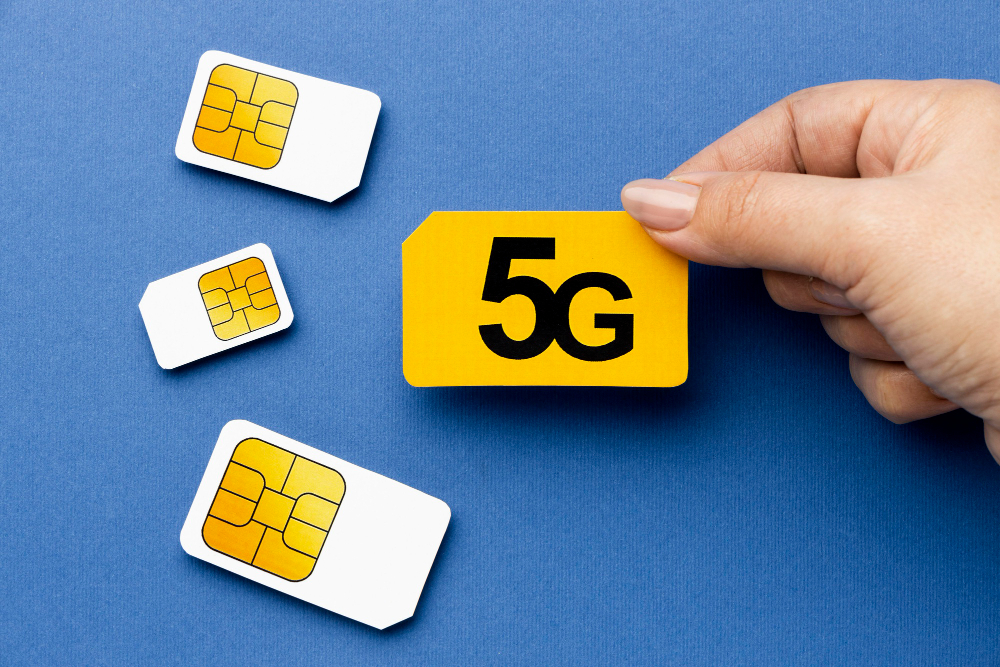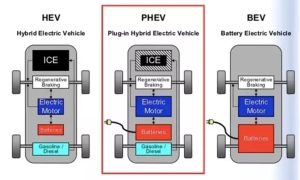In the world of Industrial Internet of Things (IoT), connectivity is the lifeline that enables seamless communication between machines, devices, and systems. IoT SIM cards play a crucial role in providing reliable and secure cellular connectivity to industrial IoT deployments. In this blog post, we will explore the use cases and benefits of IoT SIM cards in industrial IoT applications, highlighting their importance in achieving connectivity and unlocking the potential of Industry 4.0.
IoT SIM Cards for Industrial IoT
IoT SIM cards, also known as M2M (Machine-to-Machine) SIM cards, are specialized SIM cards designed for IoT devices. These SIM cards are embedded in industrial machines, equipment, or sensors and enable them to connect to cellular networks to transmit data. Unlike regular SIM cards used in smartphones, IoT SIM cards are specifically tailored to meet the unique requirements of industrial IoT applications.
Use Cases of IoT SIM Cards in Industrial IoT

1. Remote Monitoring and Asset Management
IoT SIM cards enable real-time monitoring and management of industrial assets, regardless of their location. They facilitate the collection and transmission of data such as equipment performance, maintenance needs, and operational parameters. With IoT SIM cards, organizations can monitor assets remotely, make data-driven decisions, and optimize maintenance schedules.
2. Predictive Maintenance
By equipping industrial equipment with IoT SIM cards, organizations can implement predictive maintenance strategies. These SIM cards enable continuous data collection, which is analyzed using advanced analytics and machine learning algorithms. The insights gained from this analysis help identify potential equipment failures or maintenance requirements in advance, reducing downtime and optimizing maintenance costs.
3. Supply Chain Optimization
They play a significant role in optimizing supply chain operations. By integrating IoT-enabled devices, such as tracking sensors and GPS trackers, with IoT SIM cards, organizations can gain real-time visibility into the movement of goods, monitor inventory levels, and improve logistics efficiency. This enables timely decision-making, improves inventory management, and enhances overall supply chain performance.
4. Smart Energy Management
IoT SIM cards enable intelligent energy management in industrial settings. By connecting energy meters, sensors, and control systems to cellular networks, organizations can monitor energy consumption, identify energy inefficiencies, and implement proactive energy-saving measures. IoT SIM cards facilitate real-time data transmission, allowing for optimized energy usage and cost savings.
5. Environmental Monitoring
These are instrumental in environmental monitoring applications. By deploying IoT-enabled sensors for air quality, temperature, humidity, and other environmental parameters, organizations can gather real-time data to monitor and assess environmental conditions. This information can be used to ensure compliance with regulations, optimize resource utilization, and support sustainability initiatives.
Benefits of IoT SIM Cards in Industrial IoT

1. Reliable Connectivity
IoT SIM cards provide robust and reliable connectivity in industrial environments. They ensure consistent communication between devices, even in remote or challenging locations. This reliable connectivity is essential for critical applications that require continuous data transmission and real-time response.
2. Global Coverage
IoT SIM cards offer global coverage, allowing industrial IoT deployments to operate seamlessly across different regions and countries. With a single IoT SIM card, organizations can connect and manage devices deployed worldwide, simplifying logistics and reducing operational complexities.
3. Security and Data Privacy
IoT SIM cards incorporate advanced security features to protect data transmission and ensure the privacy of sensitive information. Encryption protocols and authentication mechanisms are implemented to safeguard against unauthorized access and cyber threats. These security measures are crucial in industrial IoT environments, where data integrity and confidentiality are paramount.
4. Scalability and Flexibility
IoT SIM cards offer scalability and flexibility, allowing organizations to easily scale their industrial IoT deployments. As the number of connected devices grows, organizations can seamlessly add new IoT SIM cards to expand their network without significant infrastructure changes. Additionally, IoT SIM cards support various connectivity options, including 2G, 3G, 4G, and emerging technologies like 5G, enabling organizations to adapt to evolving connectivity requirements.
5. Cost Optimization
IoT SIM cards provide cost optimization opportunities for industrial IoT deployments. By leveraging IoT SIM cards, organizations can efficiently manage data usage, allocate resources based on specific needs, and optimize data plans to avoid unnecessary expenses. Moreover, IoT SIM cards often offer competitive pricing models tailored for IoT deployments, ensuring cost-effective connectivity.
6. Simplified Deployment and Management
IoT SIM cards simplify the deployment and management of industrial IoT networks. With centralized management platforms, organizations can remotely provision, activate, and monitor IoT SIM cards. This streamlined approach reduces manual intervention, minimizes errors, and enables efficient device onboarding and management.
7. Enhanced Connectivity Control
IoT SIM cards provide organizations with granular control over connectivity. With features like remote SIM card activation, deactivation, and suspension, organizations can easily manage connectivity based on device status or specific operational requirements. This control enhances operational efficiency, reduces costs, and allows for quick adjustments as needed.
8. Increased Data Agility
IoT SIM cards enable real-time data transmission, ensuring that critical information is readily available for analysis and decision-making. This data agility empowers organizations to harness the power of real-time analytics, derive actionable insights, and respond promptly to changing operational conditions.
9. Interoperability and Standardization
They adhere to industry standards and protocols, ensuring interoperability with a wide range of IoT devices, gateways, and platforms. This standardization simplifies integration efforts and enables seamless communication between diverse industrial IoT components.
10. Future-Proof Connectivity
They provide future-proof connectivity options. As cellular technologies evolve, IoT SIM cards can adapt to newer generations of networks, such as 5G. This future-proof connectivity ensures that industrial IoT deployments can leverage the latest advancements in connectivity technology without significant infrastructure changes.
The benefits of 5G-enabled IoT SIM cards
The benefits of 5G-enabled IoT SIM cards are numerous. First and foremost, they will enable faster and more reliable data transfer between devices, leading to increased efficiency and productivity. They will also enable the development of more advanced IoT applications, such as remote surgery and augmented reality, which require high-speed data transfer and low latency. Additionally, 5G-enabled IoT SIM cards will enable the use of edge computing, where data is processed closer to the source, reducing latency and improving response times.
IoT SIM cards play a vital role in enabling reliable, secure, and scalable connectivity for industrial IoT deployments. Through their use cases and benefits, IoT SIM cards unlock the potential of Industry 4.0 by facilitating remote monitoring, predictive maintenance, supply chain optimization, smart energy management, and environmental monitoring. The advantages of IoT SIM cards include reliable connectivity, global coverage, security, scalability, cost optimization, simplified deployment, enhanced connectivity control, increased data agility, interoperability, and future-proof connectivity. By leveraging IoT SIM cards, organizations can harness the full potential of industrial IoT, driving operational efficiency, cost savings, and innovation in the digital era.
































































